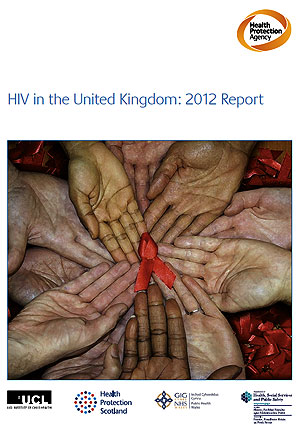New HPA Data Shows Increase In Number Of People Living With HIV In UK
The Health Protection Agency (HPA) announced last week, in advance of World AIDS Day on 1 December that it welcomes national HIV testing week (3rd to 7th December), as new data shows that a quarter of people living with HIV remain undiagnosed in the UK. In other words, they are not even aware of the fact that they are infected with the condition.
 Since the introduction of effective treatment in the mid-1990s, HIV infection has been transformed from a fatal to chronic life-long infection.
Since the introduction of effective treatment in the mid-1990s, HIV infection has been transformed from a fatal to chronic life-long infection.
According to latest HPA figures there were 6,280 new HIV diagnoses in 2011, taking the total number of people living with HIV in the UK to around 96,000. Publishing in National HIV Testing Week, the data show although late HIV diagnoses dropped slightly in 2011 (47 per cent, from 50 per cent in 2010), a quarter of people with HIV remained unaware of their status.
The ‘HIV in the UK’ report also found:
- New diagnoses among men who have sex with men (MSM) reached an all-time high in 2011 (3,010) – nearly one in 12 MSM in London and one in 20 in the UK now has HIV (47 per 1,000).
- The black African community also remained at higher HIV risk in 2011 with 37 per 1,000 living with the infection.
- Nearly half of all new diagnoses were acquired heterosexually (2,990; 48 per cent). Of these, over half were probably acquired in the UK in 2011, compared to only 27 per cent in 2002.
- The small decline in the total new diagnoses (from 6400 in 2010 to 6,280 in 2011) was driven by a reduction in diagnoses among people born outside the UK.
- Overall HIV prevalence in the UK was 1.5 per 1,000 population.
Dr Valerie Delpech, HPA head of HIV surveillance, said
“These figures are a reminder of how vital safe sex programmes remain. Promoting HIV testing and condom use is crucial to tackling the high rates of transmission, late diagnosis and undiagnosed HIV still seen in the UK. National HIV Testing Week is a great opportunity to encourage people to get tested. We also encourage clinicians to take every opportunity to offer the test to those in higher risk groups and, in high prevalence areas, to all general medical admission and new GP registrants.
The good news is that with the excellent services and treatments available nowadays, if diagnosed and treated early someone with HIV can look forward to a normal lifespan, as well as protecting their sexual partners from infection. That’s why it is vitally important that anyone who has been at risk gets an HIV test, and that those in higher risk groups get screened regularly.”
How to reduce your risk of getting or transmitting HIV or Sexually Transmitted Infection (STI)
- Always use a condom correctly and consistently when having sex with new or casual partners, until all partners have had a sexual health screen.
- Avoid overlapping sexual relationships and reduce the number of sexual partners.
- Get screened regularly if you are in one of the higher risk groups:
- Men who have sex with men should have an HIV and STI screen at least annually, and every three months if having unprotected sex with new or casual partners.
- People from the black African and Caribbean communities should have an HIV test, and a regular HIV and STI screen if having unprotected sex with new or casual partners.
Source: HPA